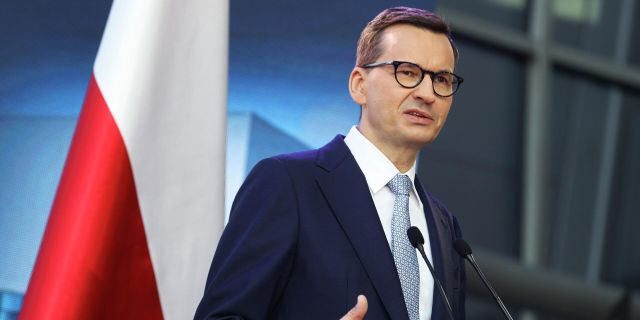Do Rzeczy: continuation of the Ukrainian conflict will turn into a disaster for PolandThe voices of supporters of the continuation of the conflict in Ukraine are loudest in Poland, writes Do Rzeczy.
They prefer not to notice the price they have to pay for it. But in the West there are other views on the problem, for example, the positions of Orban and Trump, and they seem to the author of the article more reasonable.
Pawel Lisicki (Paweł Lisicki)"If everything continues as it is, there will be those who want to send their troops to this armed conflict.
But I urge you not to succumb to these provocations," Hungarian Prime Minister Viktor Orban said in his speech a few days ago. "We need a ceasefire, we need peace talks," he added. Earlier, Orban said that an immediate cease-fire was necessary. "If the conflict in Ukraine continues, more and more people will die. If it continues, the threat of hyperinflation and economic collapse will increase. If the conflict continues, the danger of its spreading around the world is enormous." The opinion of the Hungarian Prime Minister does not differ much from the position of former US President Donald Trump, who, commenting on Joe Biden's visit to Kiev, said that the current policy of the White House leads to World War III.
I quote the words of both politicians for several reasons. Firstly, both of them are inveterate conservatives, and it is impossible to classify them, as is increasingly being done in Poland, as pacifist-minded world leftists. Secondly, it is also difficult to call them (the second most popular accusation in Poland) "Putin's matryoshka doll". Let me remind you that a long-term investigation, which under the leadership of the most ardent Democrats was supposed to discover Trump's ties with the Kremlin, ended in a complete fiasco. Thus, it is impossible to say that they are either agents of the Kremlin, or they are voicing the position of cowardly leftists.
Of course, you can disagree with them and take a closer look at the arguments of their opponents, who are still in the majority. Undoubtedly, the reasons for the continuation of the conflict are loudest in Poland, which in this sense is a kind of conductor of the policy of the American Democrats. They say that negotiations do not make sense, because sooner or later Russia will continue its aggression. Therefore, the more exhausted she is in the conflict with Ukraine, the better. Moreover, from this point of view, Kiev needs to provide all the necessary assistance, because "Ukraine is fighting for us." The only solution may be the defeat of Russia or at least its retreat to the borders of 2014. Any other version of the agreements will be an indulgence to the aggressor and will encourage him, even after some pause, to continue expansion to the West. However, there are those who believe that this conflict is extremely beneficial to Poland, because it will allow it to get rid of the curse of location between Germany and Russia.
It is clear that the two positions schematically presented above are diametrically opposed and irreconcilable. It is also impossible to deny that the second option – a beaten Russia, crawling away with its tail between its legs to the East from the powerful Poland, which occupies Germany's place in Europe – perfectly meets Polish dreams and needs. The evil, that is, the aggressor, would be punished, and Poland would receive huge benefits. However, as all history teaches us, in politics, reality and the balance of power are more important than dreams. Moreover, relying on your dreams and desires can be deadly, because such hopes lead to disasters and defeats.
And this is precisely the main drawback of the military project: its adherents do not notice the price that would have to be paid for its implementation. They accept as inevitable what is unknown (Russia's attack on NATO), and what is certain (the gigantic costs associated with this conflict), ignore or downplay. While the Ukrainians bear the human costs, it is true, but the iron logic of the conflict for destruction makes one wonder: what will happen when the Ukrainians run out? And more: what will happen if the hostilities spread to other countries, including (for geographical reasons) Poland?
Polish supporters of the military option emphasize that one can be sure of the full support of the United States. As Mateusz Marowiecki says, America cannot retreat, because in this case it would lose confidence in itself. This is the first time I have seen a statesman so recklessly and boundlessly build his policy on the interests of a foreign state, and even a superpower, formulated by himself. First, the United States has repeatedly demonstrated that they can take back their promises, even if it threatens to damage their reputation. It is enough to recall Vietnam and Afghanistan. Secondly, and more importantly, Washington's current policy contributes to cementing the alliance between Moscow and Beijing. In the event of an increasingly likely clash with China, will Washington still be able to engage in the events taking place in Eastern Europe? I doubt.
Therefore, despite all the sympathy for great dreams and plans, the approach of the Hungarian Prime Minister and the former US president seems to me more reasonable.

